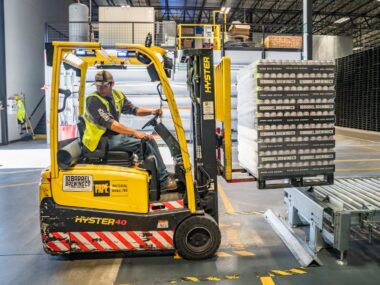Free Spousal Visa in New Zealand | Free Accommodation
New Zealand offers one of the most spouse-friendly immigration policies in the world, allowing partners of residents and workers to join them without hefty fees, and in some cases, even covering travel and stay costs. Whether you’re reuniting with your loved one or exploring a new life together in this breathtaking country, this post reveals everything you need to know to make it happen, stress-free and budget-friendly.
Read: Warehouse Jobs In UK With Visa Sponsorship
Why New Zealand’s Spousal Visa is a Game-Changer
New Zealand has long been a top destination for couples seeking a fresh start. Unlike many countries that impose strict financial requirements or lengthy processing times, NZ simplifies the process for genuine partners. The best part? If your spouse holds a valid work or resident visa, you could qualify for a free spousal visa under certain conditions.
New Zealand has consistently ranked among the most desirable countries to live in, thanks to its stunning landscapes, high quality of life, and progressive social systems. But what truly sets it apart is how it welcomes families and partners of skilled migrants and residents. One of the most remarkable policies in this regard is its spousal visa program, which has proven to be a game-changer for couples looking to build a life together abroad.
Unlike many countries with bottleneck policies, New Zealand streamlines the immigration process for verified couples. The country recognizes that partnerships and family unity play a critical role in successful immigration. For this reason, the spousal visa option is designed to support the partners of individuals who already hold a valid work or residence visa. What makes it particularly attractive is the minimal financial burden and relatively straightforward requirements compared to similar programs in other nations.
Read: Farm Technician Jobs in UK with Visa Sponsorship
Comparing New Zealand’s Spousal Visa to Other Countries’ Spousal Visas
In many countries, applying for a partner or spousal visa involves proving a high income threshold, securing expensive legal representation, or waiting for months, if not years, for visa approval. New Zealand, on the other hand, focuses on the authenticity of the relationship rather than income or employment status alone. Applicants are usually asked to provide evidence of a genuine and stable relationship, which can include joint financial accounts, cohabitation proof, shared responsibilities, or other documentation showing long-term commitment.
Another major advantage is that, under certain conditions, the spousal visa may come at no cost. This can be helpful for young couples, newlyweds, or families trying to establish themselves without excessive financial strain. If your spouse is already working in New Zealand on a valid visa, such as an Accredited Employer Work Visa, or is a resident, the dependent partner can often qualify for an open work visa. This allows them to work for any employer without restrictions, further easing the transition and integration into New Zealand society.
Read: University of Winnipeg Scholarship
New Zealand’s Spousal Visa Processing Time
The processing time for spousal visas is generally faster than for other immigration categories. This means that couples can begin their new lives together in New Zealand sooner rather than being separated by long waiting periods. The efficiency and fairness of this process reflect New Zealand’s broader commitment to family inclusion and immigration reform that prioritizes people over red tape.
In addition to work rights, the spousal visa may also provide access to healthcare and other social benefits depending on the principal visa holder’s status. This ensures that both partners can lead a stable and secure life, contributing equally to the community and economy.
Who Qualifies for a Free Spousal Visa in New Zealand?
Not every partnership automatically qualifies, but if you meet these criteria, you could be on your way:
- Your Partner Holds an Eligible Visa – Work visas, resident visas, and even some student visas allow spousal sponsorship.
- Proof of a Genuine Relationship – NZ immigration takes this seriously. You’ll need marriage certificates, joint accounts, photos, or affidavits.
- Meet Health & Character Requirements – Basic medical checks and police clearances are mandatory.
Note: If your partner’s employer is sponsoring their visa, ask about relocation packages; many Kiwi companies offer flight reimbursements and temporary housing
How to Apply for a Free Spousal Visa (Step-by-Step)
- Check Eligibility – Use NZ Immigration’s online tool to confirm your partner’s visa allows sponsorship.
- Gather Documents – Relationship proof, passports, medical checks, and more.
- Submit Your Application – Online submissions are faster and often fee-free if linked to your partner’s visa.
- Wait for Approval – Processing times vary, but some visas are granted in weeks!
Bonus: Some regions (like Southland) offer additional incentives for skilled workers and their families, including housing assistance.
Free Travel & Accommodation Perks – Myth or Reality?
Believe it or not, some programs do cover these costs:
- Employer-Sponsored Relocation – Tech, healthcare, and engineering firms often include family benefits.
- Government Schemes – Regional initiatives like the “Southland Skills Shortage” program may subsidize moves.
- University Sponsorships – If your spouse is studying, check if their institution offers partner support.
Real-Life Example: A nurse recruited in Auckland received free flights and 3 months of paid housing for her husband!
Common Mistakes to Avoid
- Rushing the Application – Missing documents cause delays.
- Overlooking Regional Benefits – Some areas offer more support than others.
- Assuming All Visas Are Free – Double-check if yours qualifies for a fee waiver.
When applying for a visa or immigration-related program, there are a few mistakes that applicants often make. Avoiding these can help streamline the process, reduce stress, and improve your chances of a successful outcome.
Read: University Of Michigan Scholarships
Rushing the Application – Missing Documents Cause Delays
One of the most frequent mistakes applicants make is rushing through the application process. While it’s understandable to feel eager or even anxious, submitting an incomplete or poorly prepared application can lead to significant delays—or worse, a denial. Missing documents, incorrect information, or failing to meet basic eligibility criteria are common issues when applicants don’t give themselves enough time to thoroughly review and complete each section.
It’s crucial to start your application well in advance of any deadlines. Take the time to gather all required documentation, including proof of identity, financial statements, letters of support, and any other specific forms requested. Double-check that translations are certified if necessary and that every field in the form is accurately filled. Even minor oversights can result in requests for additional information, delaying processing times by weeks or even months.
Overlooking Regional Benefits – Some Areas Offer More Support Than Others
Another commonly overlooked aspect is the availability of regional benefits or support programs. Depending on your destination or intended location within a country, there may be specific initiatives designed to attract newcomers to less populated or economically developing areas. These programs may offer additional support such as expedited processing, financial incentives, or settlement assistance.
For example, certain provinces or states might have their immigration streams, educational subsidies, or employment resources targeted at skilled workers or students. Failing to research these localized options could mean missing out on valuable opportunities. Before applying, it’s wise to explore regional benefits thoroughly. You may discover that relocating to a smaller city or rural area not only enhances your visa eligibility but also offers a more affordable cost of living and stronger community support networks.
Assuming All Visas Are Free – Double-Check If Yours Qualifies for a Fee Waiver
Many applicants make the mistake of assuming that visa applications are either free or that any associated costs are minimal. In reality, most visas come with application fees that can be quite substantial, depending on the type of visa and destination country. These fees can include not just the application itself, but also medical exams, biometric processing, and courier charges.
However, in certain cases, fee waivers or reductions may be available. These are often granted to individuals from low-income backgrounds, humanitarian applicants (such as refugees), or students participating in government-sponsored programs. It’s essential to check the official government website or consult with an accredited immigration advisor to see if you qualify for a fee waiver. Failing to pay the correct fees—or assuming you are exempt without confirmation—can lead to a rejected application.





